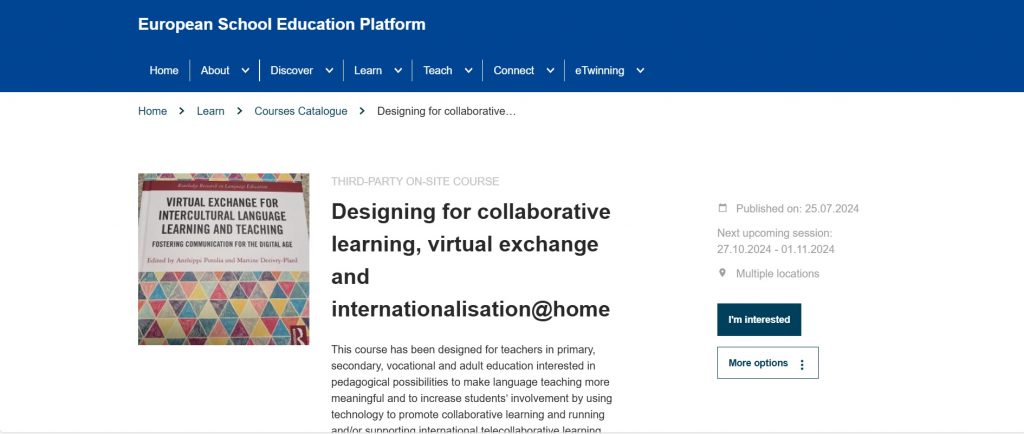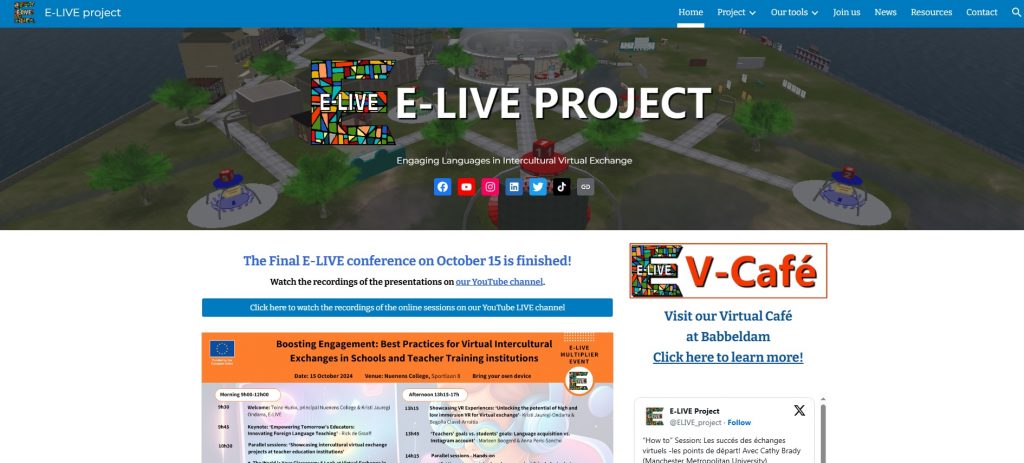
On behalf of TELLConsult, associated partner of the E-Live project, I attended the project’s final dissemination event on October 15 at the Nuenens College, one of the project’s secondary partner schools.
For more details about the project visit E-LIVE: Engaging Languages in Intercultural Virtual Exhange.
I greatly enjoyed this well organised and most informative day offering an attractive mix of theoretical and practice-based professional development content through presentations, workshops and discussion sessions as the programme shows:
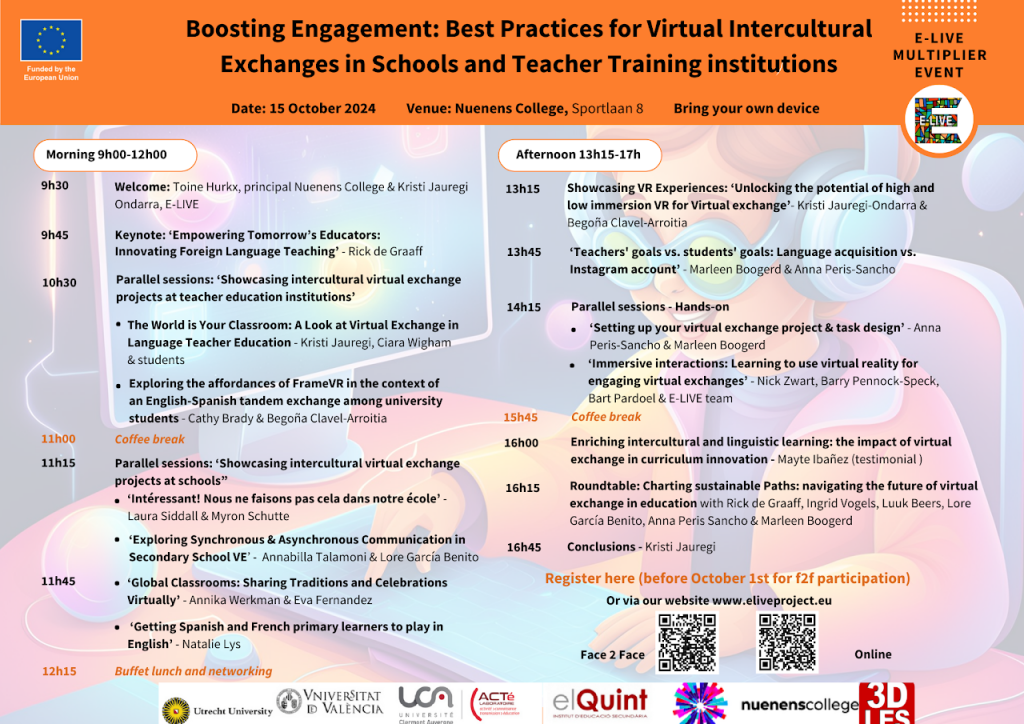
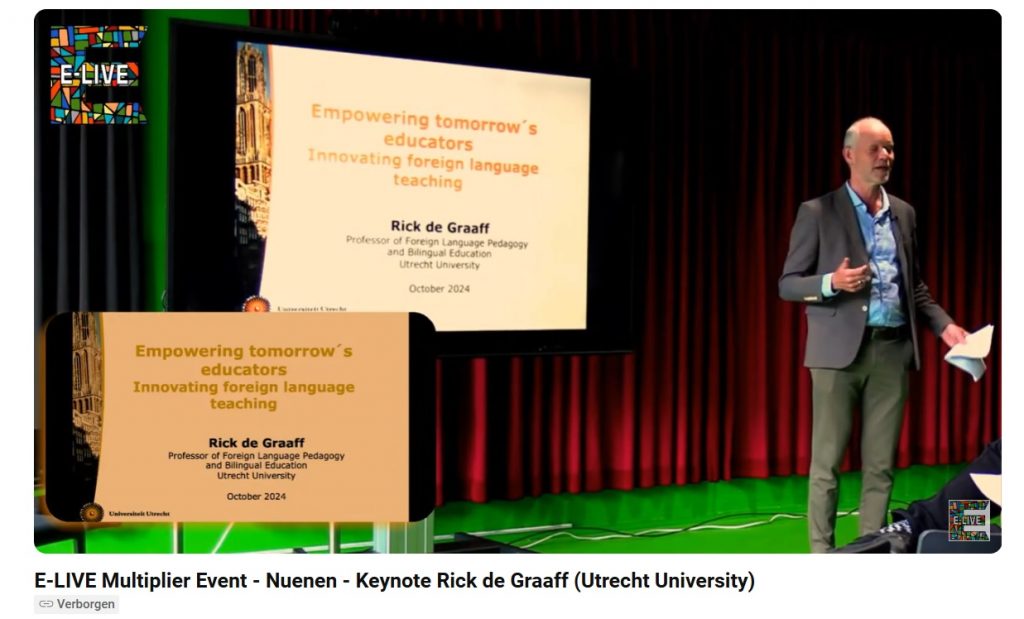
Dr. Rick de Graaff, Professor of Foreing Language Pedagogy and Bilingual Education at Utrecht University, delivered a most interesting and lucid key note speech: ‘Empowering Tomorrow’s Educators: Innovating Foreign Language Teaching’ in which he also referred to some key components of the Dutch national curriculum reform that will soon enter its pilot implementation stage.
Kristi Jauregi Ondarra, associate professor at Utrecht University and the initiator and projectleader of the E-Live project, together with partners Ciara R. Wigham and Malorie Trapani, presented ‘The World is Your Classroom: A Look at Virtual Exchange in Language Teacher Education’ reporting the results of exchanges between the student teachers at their respective institutions.
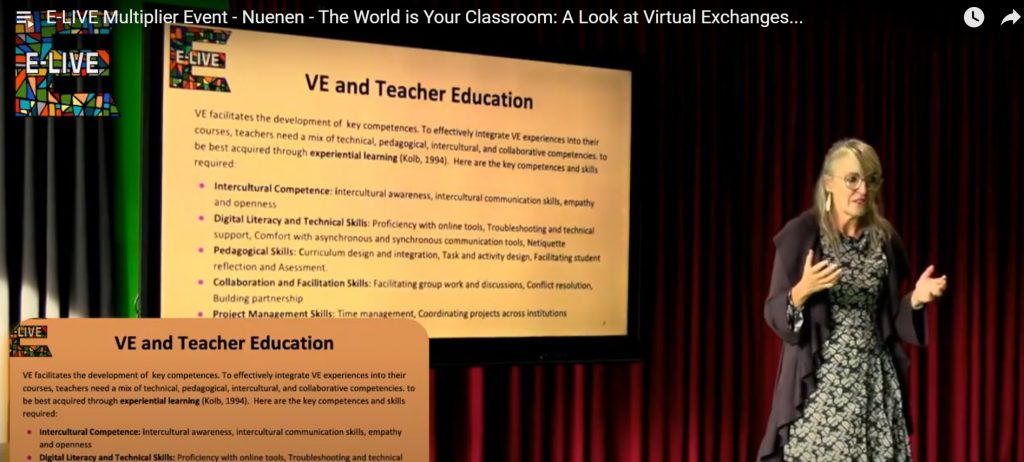
These and all other activities were streamed and made available here for those who could not attend live or online.
For more information about some of the project’s results and/or of other dissemination activities see the rich collection of resources E-LIVE project – Resources and the E-LIVE project – News respectively.
For me personally it was also a special day as it provided an opportunity to meet ex-colleagues of Utrecht University, EUROCALL members and partners of previous EU projects I was involved in.
In that respect I mention the project ‘Networked Interaction in Foreign Language Acquisition and Research’ (NIFLAR) in particular since it was the first project at EU level to which I could contribute my previous (language) teaching & learning experiences in MOOs and 3D virtual world contexts.
The latter were in the project VITAAL (2007-2008) and included providing 3D environments as spaces for online games and speaking practice such as e.g. in a ‘Language Village’, a popular assessment practice in Dutch Language Education at secondary level at the time. (view this VoiceThread-supported presentation or read more about it in the English version of the paper: ‘Virtueel taaldorp. (2009). Levende Talen Magazine, 96(5), 4-8, and/or the paper ‘How Can 3D Virtual Worlds Contribute to Language Education? presented at the 2008 WorldCALL conference.
Rereading the related publications (one tends to get more retrospective at times later in life, I find) it shows that – although the key didactic principles are still valid – the technical tools have changed considerably and methodologies are much more refined and experience & evidence-based thanks to the wide uptake of and knowledge sharing related to telecollaboration practices by the professional (CALL) community in the EU and beyond.
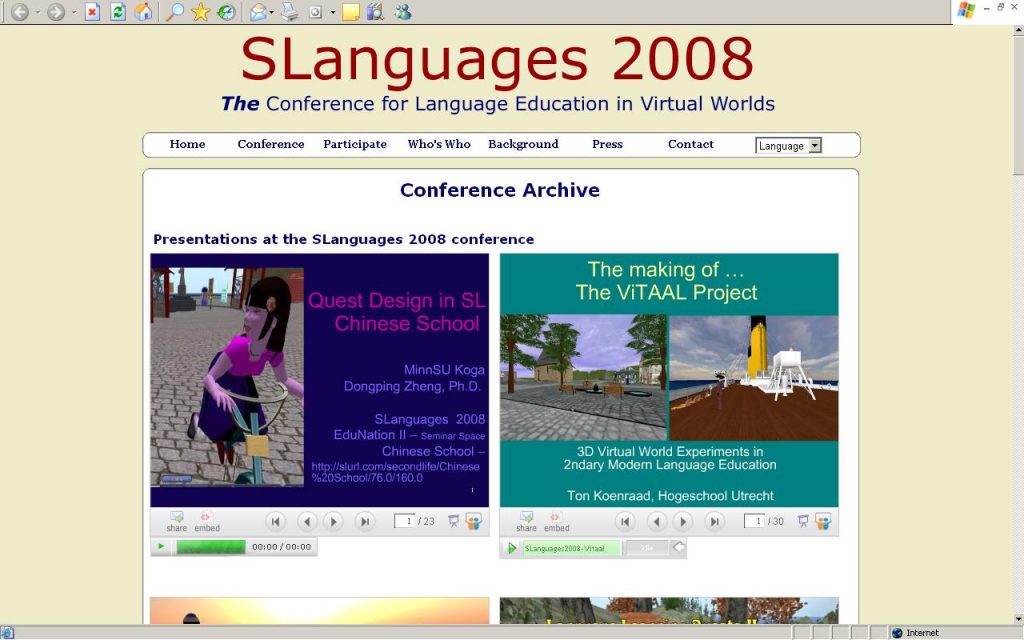
As we did for NIFLAR (see the second post ‘TELLConsult invited by Utrecht University to develop summercourse on NIFLAR project results’ on this page of our Blog Archive Koenraad.info/Blog Archive 2011 – TELLConsult) we are also contributing to E-Live’s exploitation activities. So, if interested in additional, practical professional development with a view to integrating telecollaboration in your own practice, consider attending the ErasmusPlus course ‘ Designing for collaborative learning, virtual exchange and internationalisation@home‘ which includes hands-on experiences & activities with the tools and resources developed by this and other innovative EU projects.
